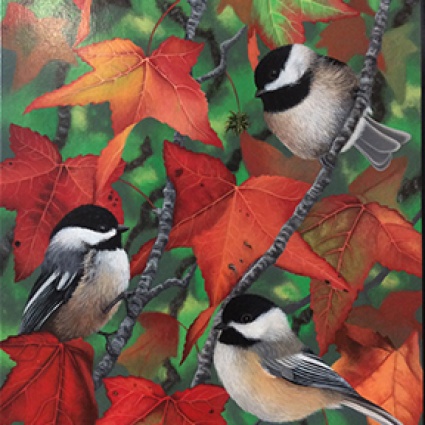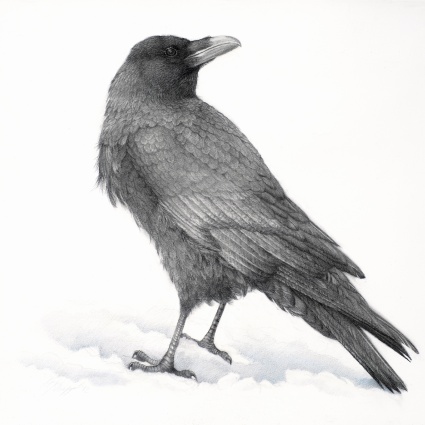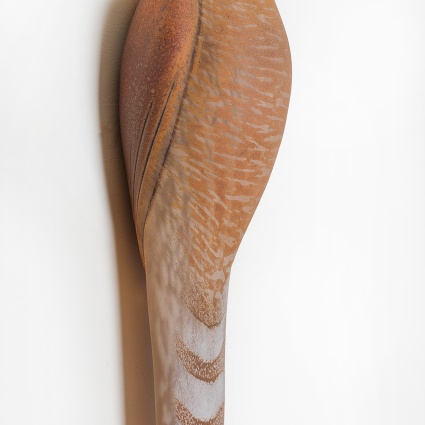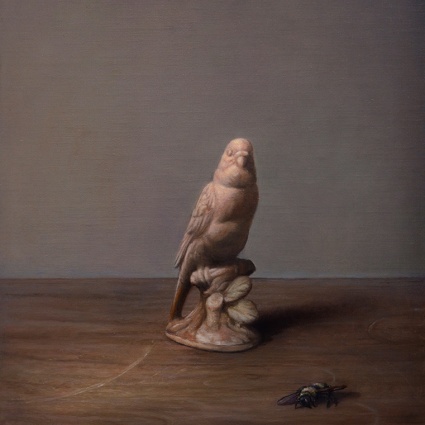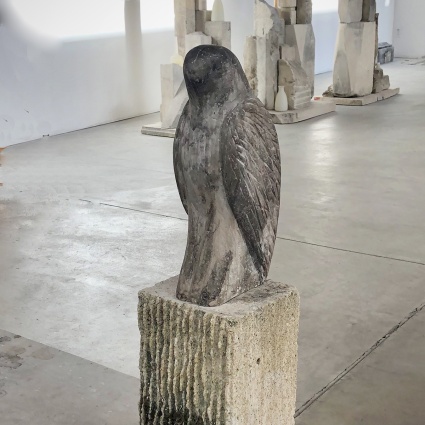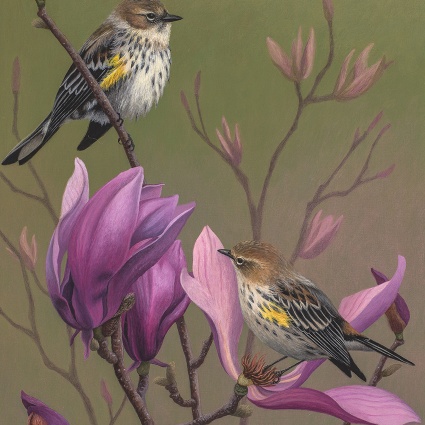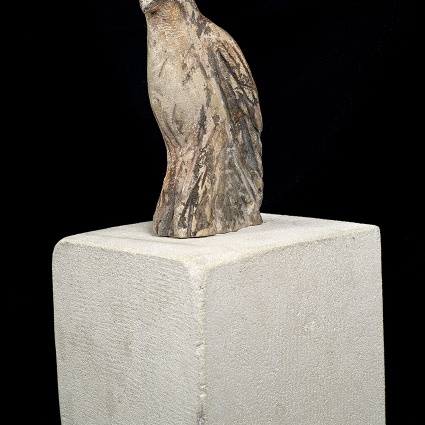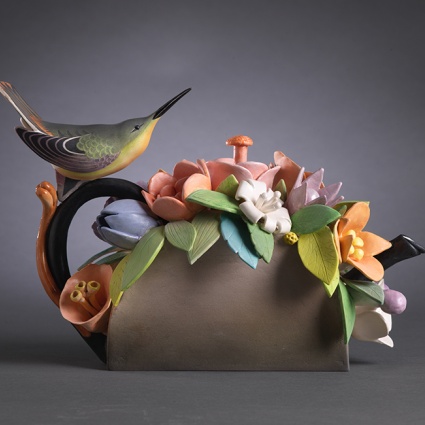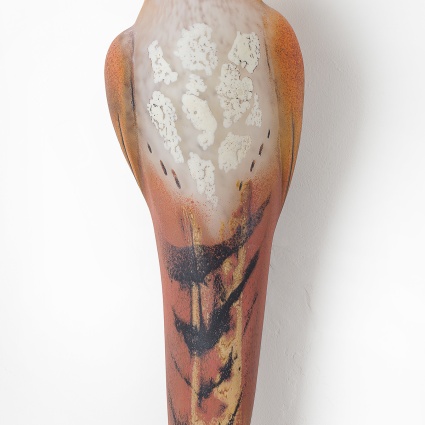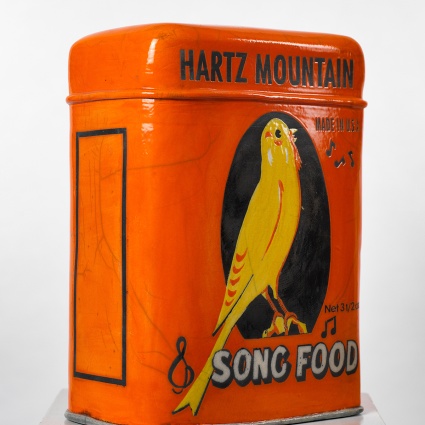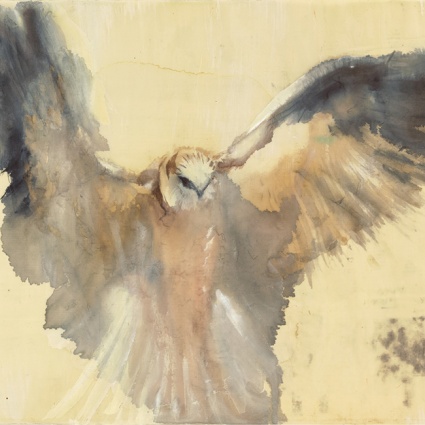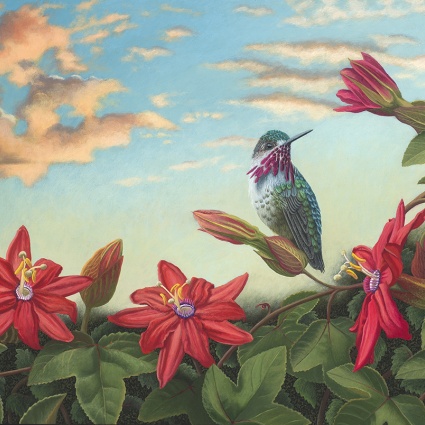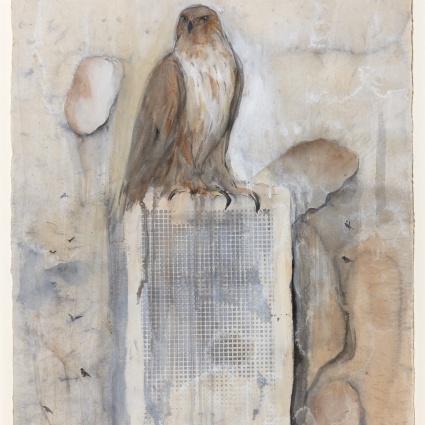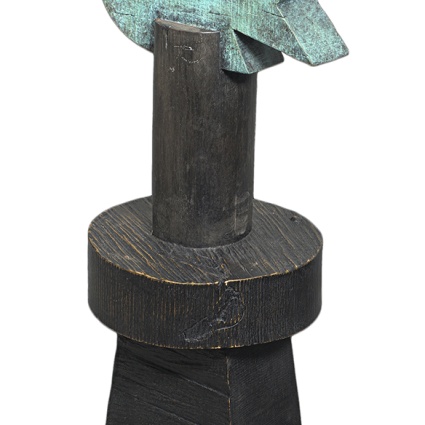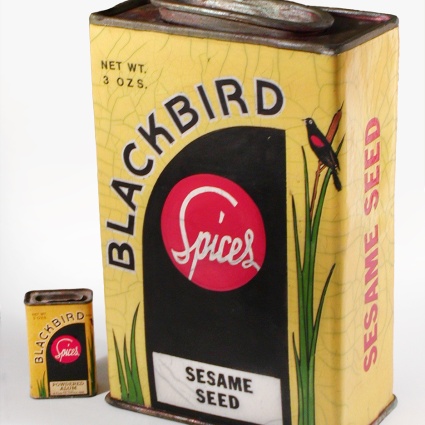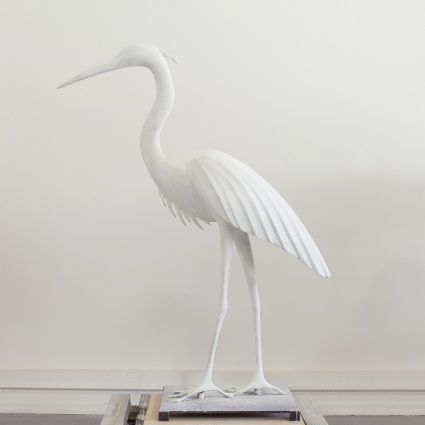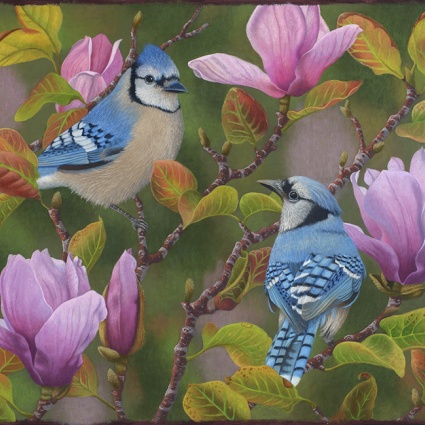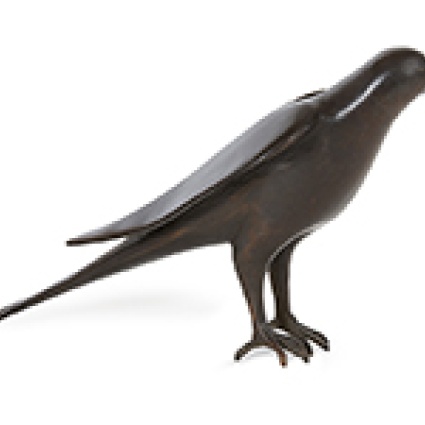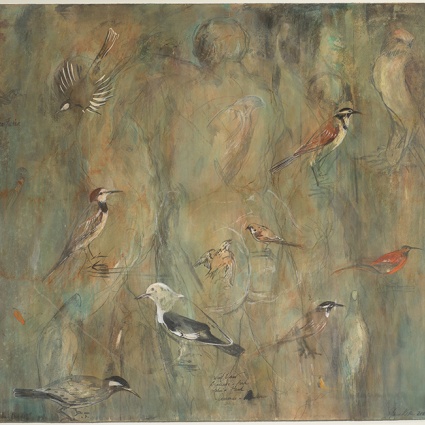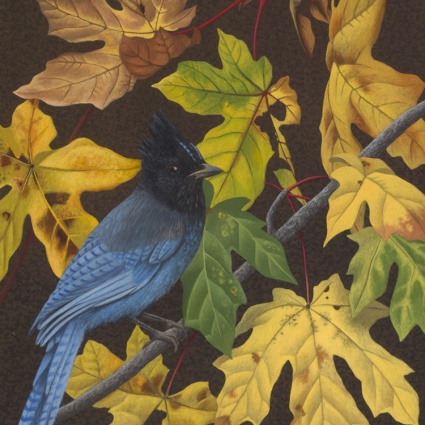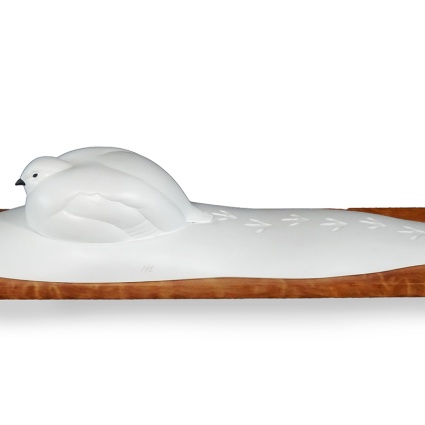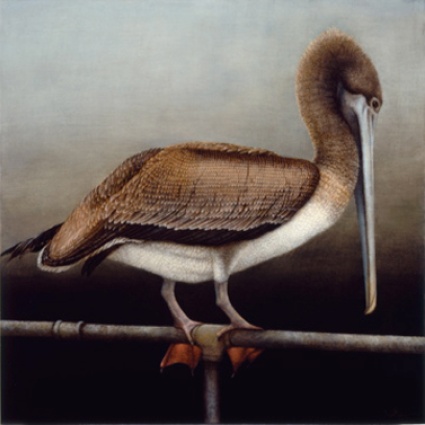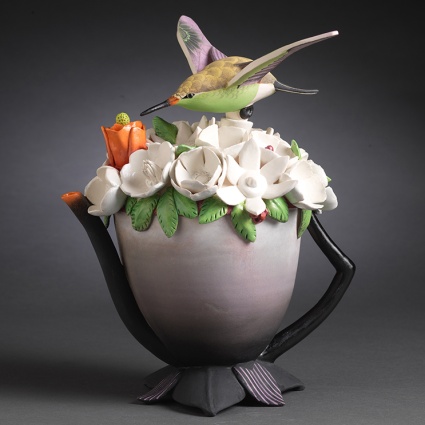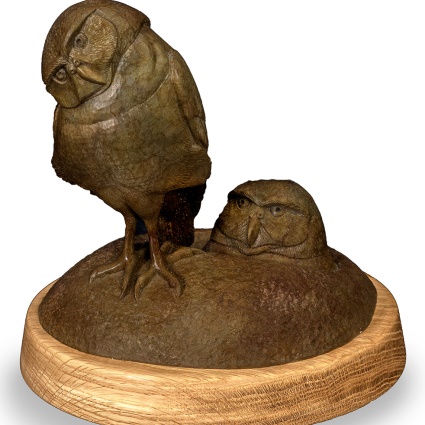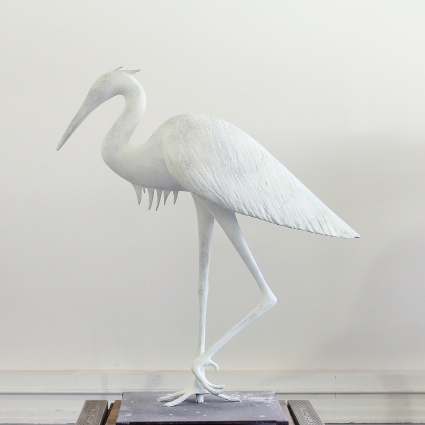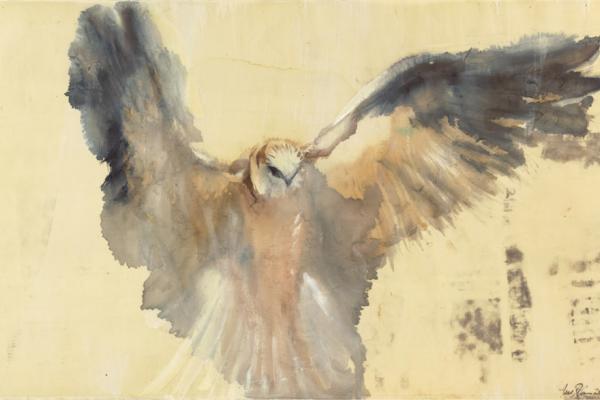
Birds
Paintings by Andrea Johnson, Mari Kloeppel, and David Ligare, sculpture by Jane Rosen, Gwynn Murrill, and Nick Lamb, ceramics by Annette Corcoran, and lots more.
Birds
Birds inhabit the sky freely in a way that humans never can. Their ability to fly imbues them with a kind of freedom that captures our imagination. Mythic tales of birds as omens or messengers, or endowed with supernatural qualities or attributes, can be found in every culture. The dove is pure, the eagle is mighty, the crane brings good fortune, while the raven is a trickster or a harbinger of death, and the owl is ominous or wise, depending on your point of view. Fantastic creatures of mysterious origins include winged dragons, the eternally reborn phoenix, and the half lion-half eagle griffin, all with bird-like attributes.
Because of their symbolic meaning, abundance, and diversity, birds have always found a place in the artistic visual vocabulary, decorating personal adornment, pottery, illuminated manuscripts, as a symbol in heraldry, and more. The 18th century naturalist John James Audubon did much to bring the grace and beauty of the species to public attention. The infinite variety of their colorful feathers and eggs, the intricate functionality of their nests, and their melodious songs (not to mention their surprising mimicry and speech), makes birds of all kinds a fascinating artistic subject.
--Helaine Glick, Independent Curator
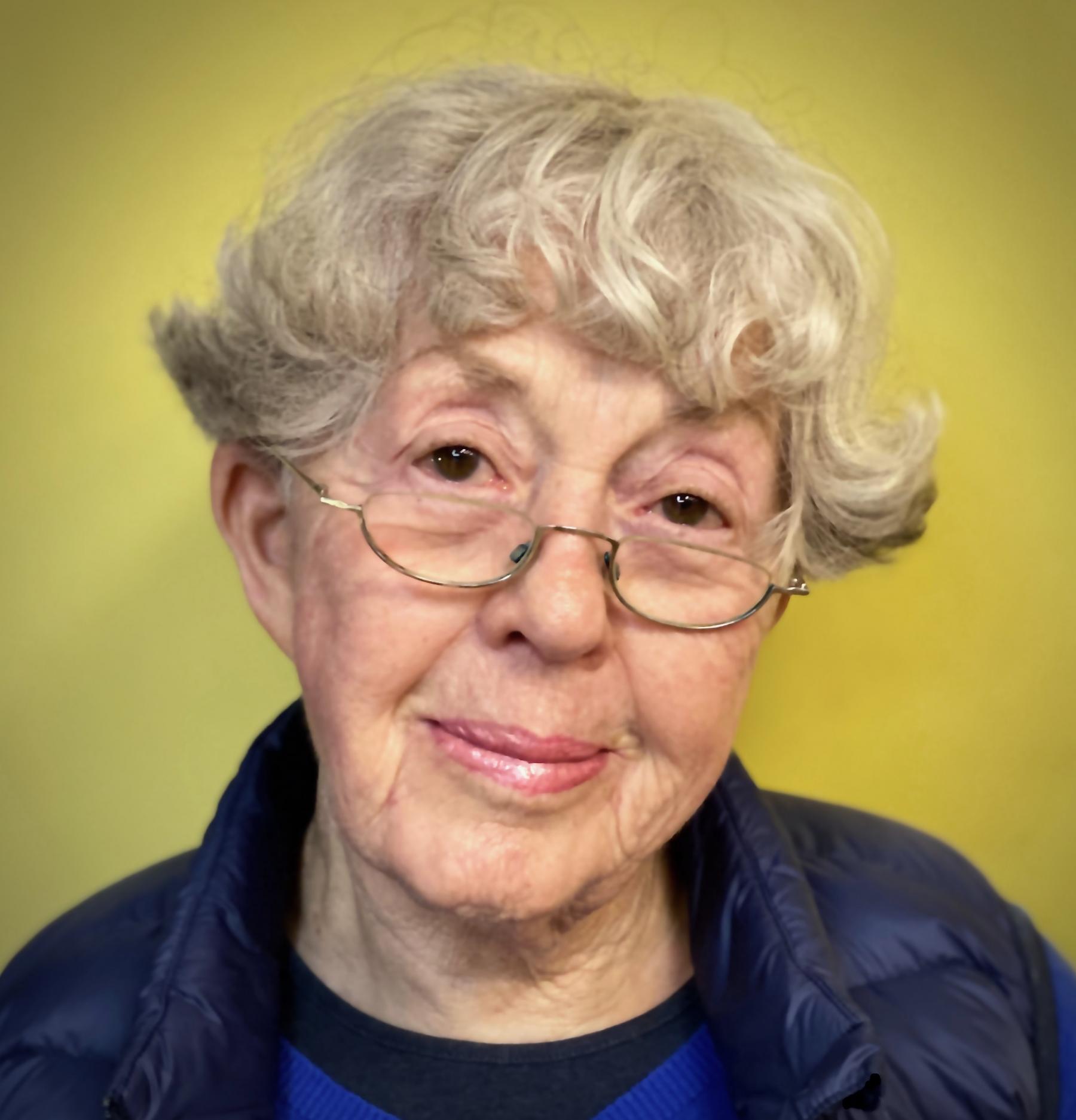
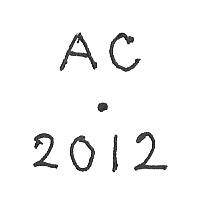
Annette Corcoran
"All wild birds beguile and fascinate, and Annette Corcoran’s porcelain bird teapots do that, and more. Corcoran’s work draws on her love of wild birds, and her extraordinary ability to capture them in porcelain. Each piece is a complete sculpture that captures the gesture and spirit of the subject birds, even when tethered to the requirements of their teapot perches." Credit: Martha Drexler Lynn
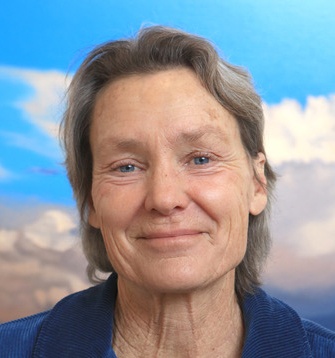
Andrea Johnson
It is how the light falls upon the land that can inspire me to paint a particular scene at a particular time. These moments are fleeting, and can often find me sprinting with my camera to the hilltops behind my house or driving up and down River road to find the exact loca- tion where the setting sun’s rays are illuminating a sliver of the Gabilan Mountains under a heavy purple cloud. It is the light that gives this landscape it’s form... shadows rounding the foothills or creating sharp linear patterns across the fields. These shapes and patterns change with the time of day and the inconstant cloud cover overhead. Land to sky... this is the relationship that I am captivated by, and it is my intent to crystallize these moments in my paintings of the Salinas Valley.
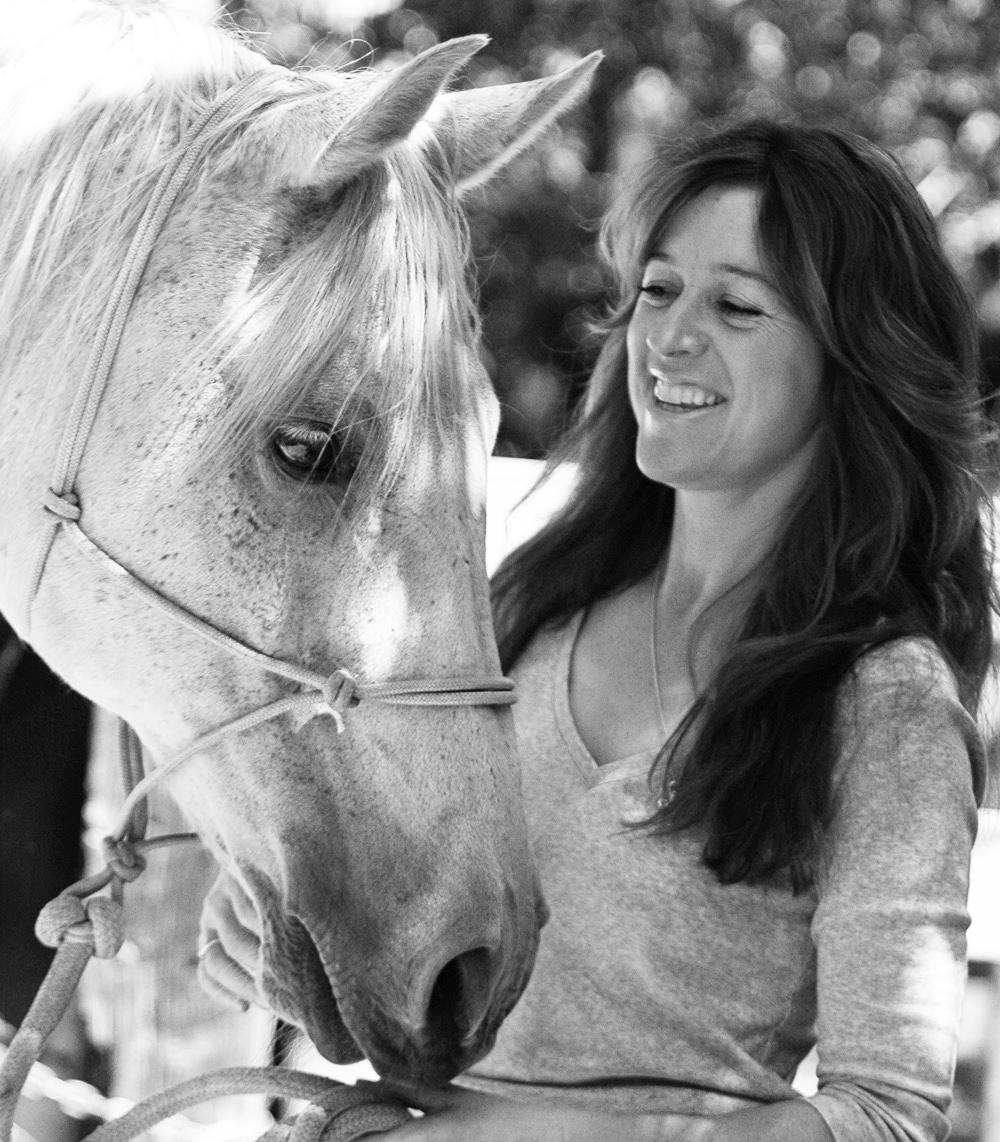
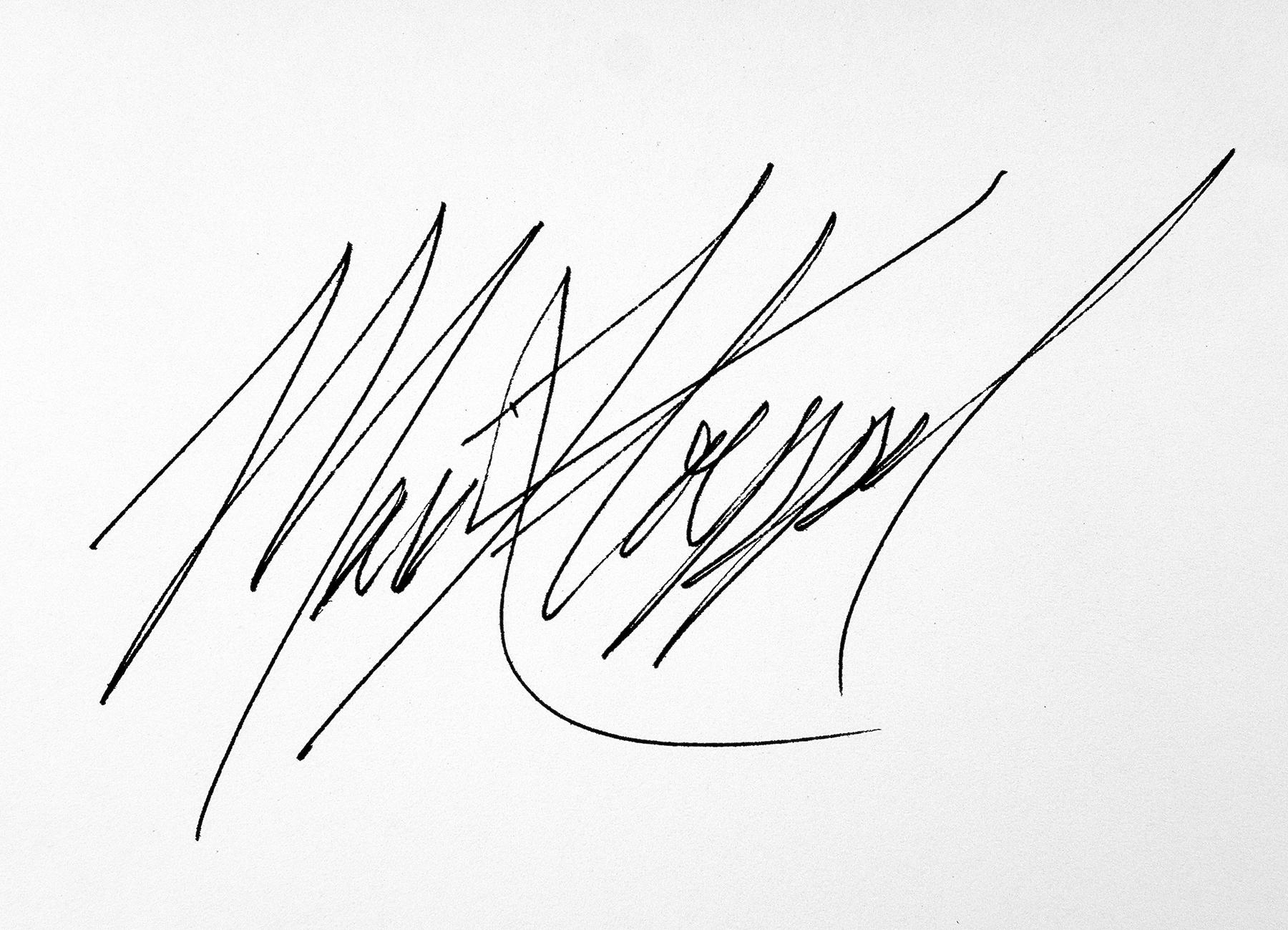
Mari Kloeppel
Mari Kloeppel is drawn to paint through sheer passion for her subjects-animals. The species matters less to her than the personal connection she shares with the animal. For Kloeppel, it is beauty and familiarity that resonate most. Most she knows well, having lived with them for years at her rural home in Elkhorn, north of the Monterey Peninsula. Others she has encountered through animal rescues or friends. Her work epitomizes an emotional connection versus an anatomical documentation.
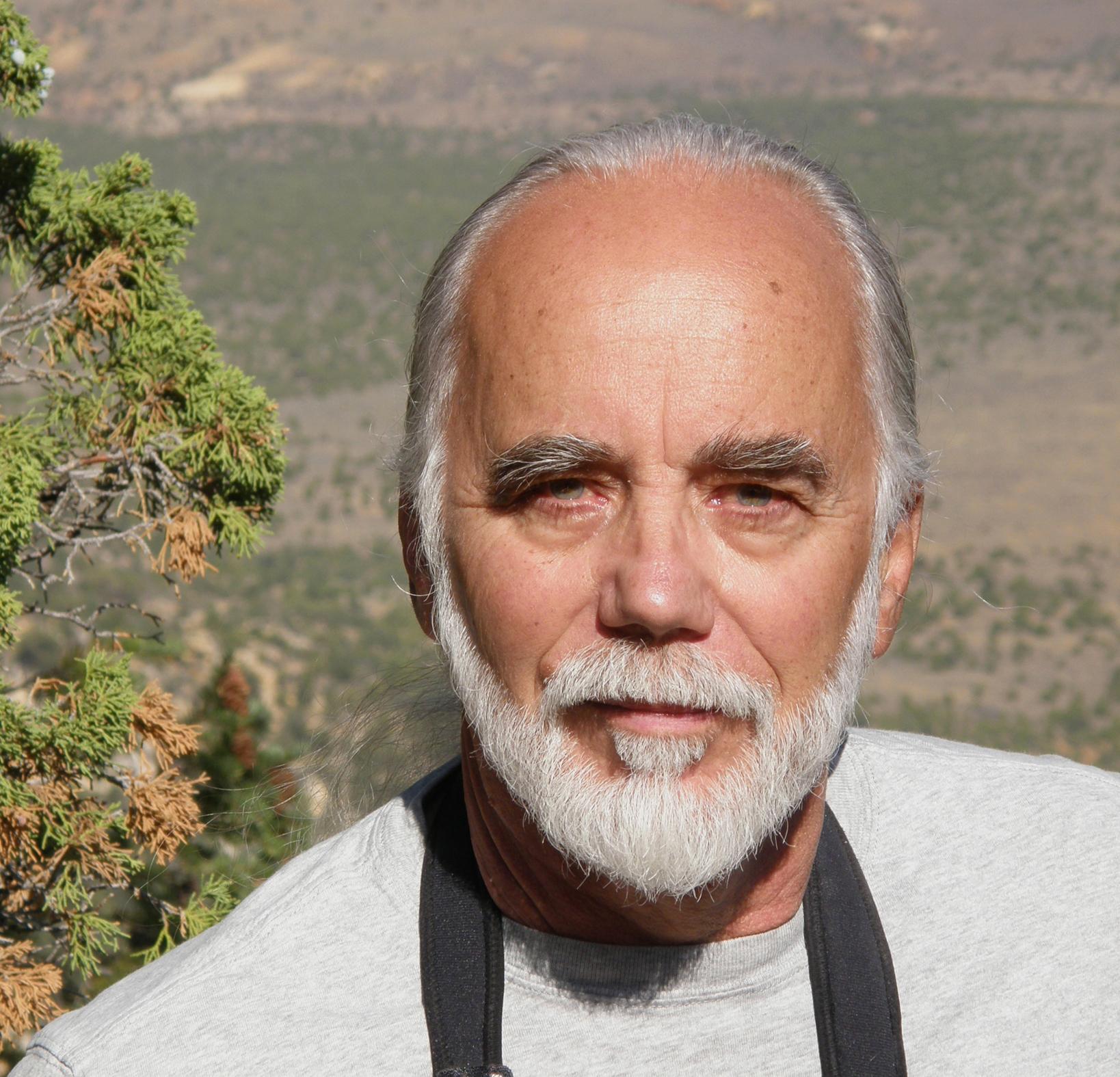
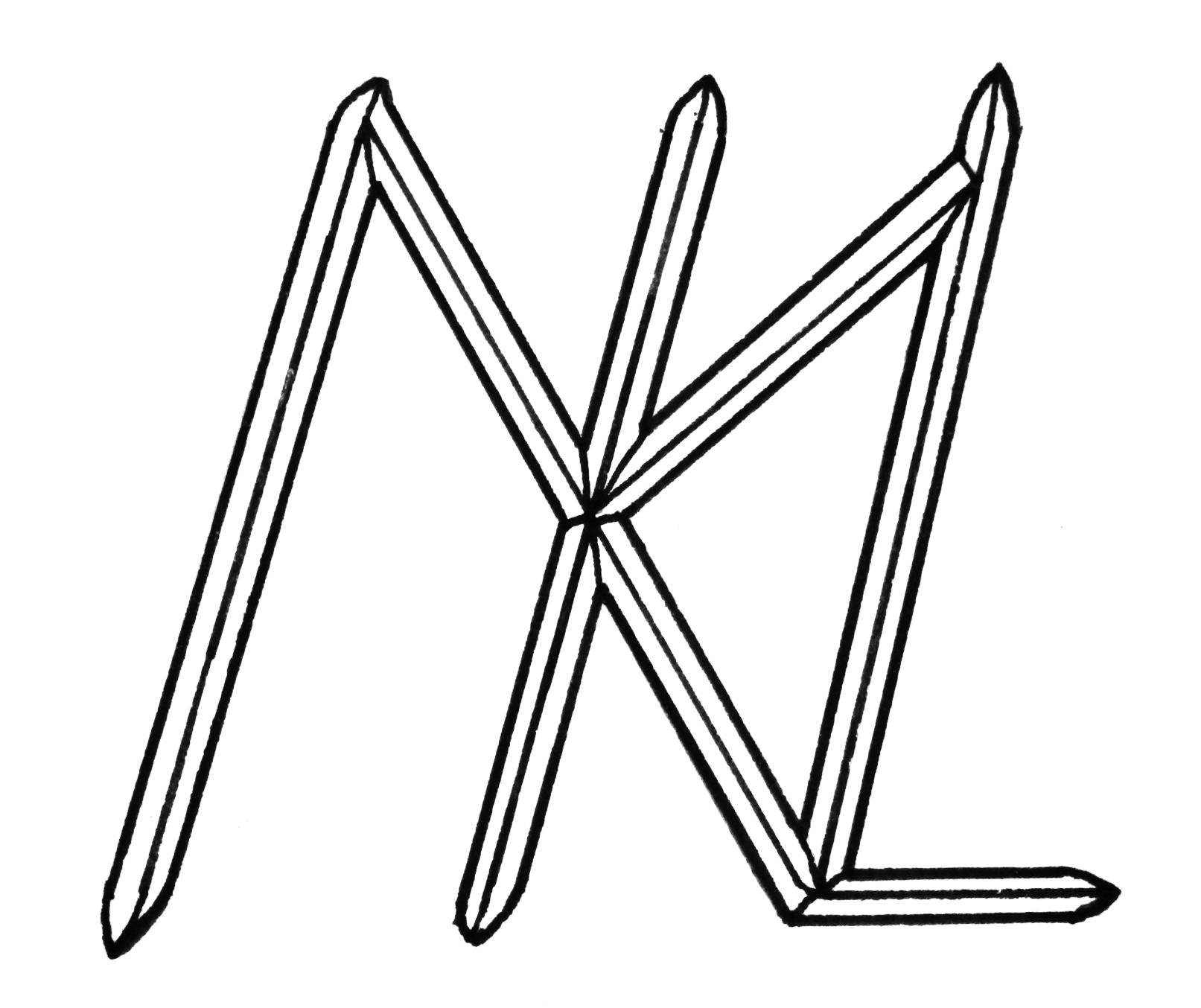
Nick Lamb
Nick Lamb is a bit of a rarity; as a modern woodcarver he has largely adopted the aesthetics of a culture distant in time and place from his own. Lamb is now one of the most highly regarded and prize-winning carvers of contemporary netsuke, and his pieces are collected privately and publicly, and exhibited in galleries and museums worldwide.
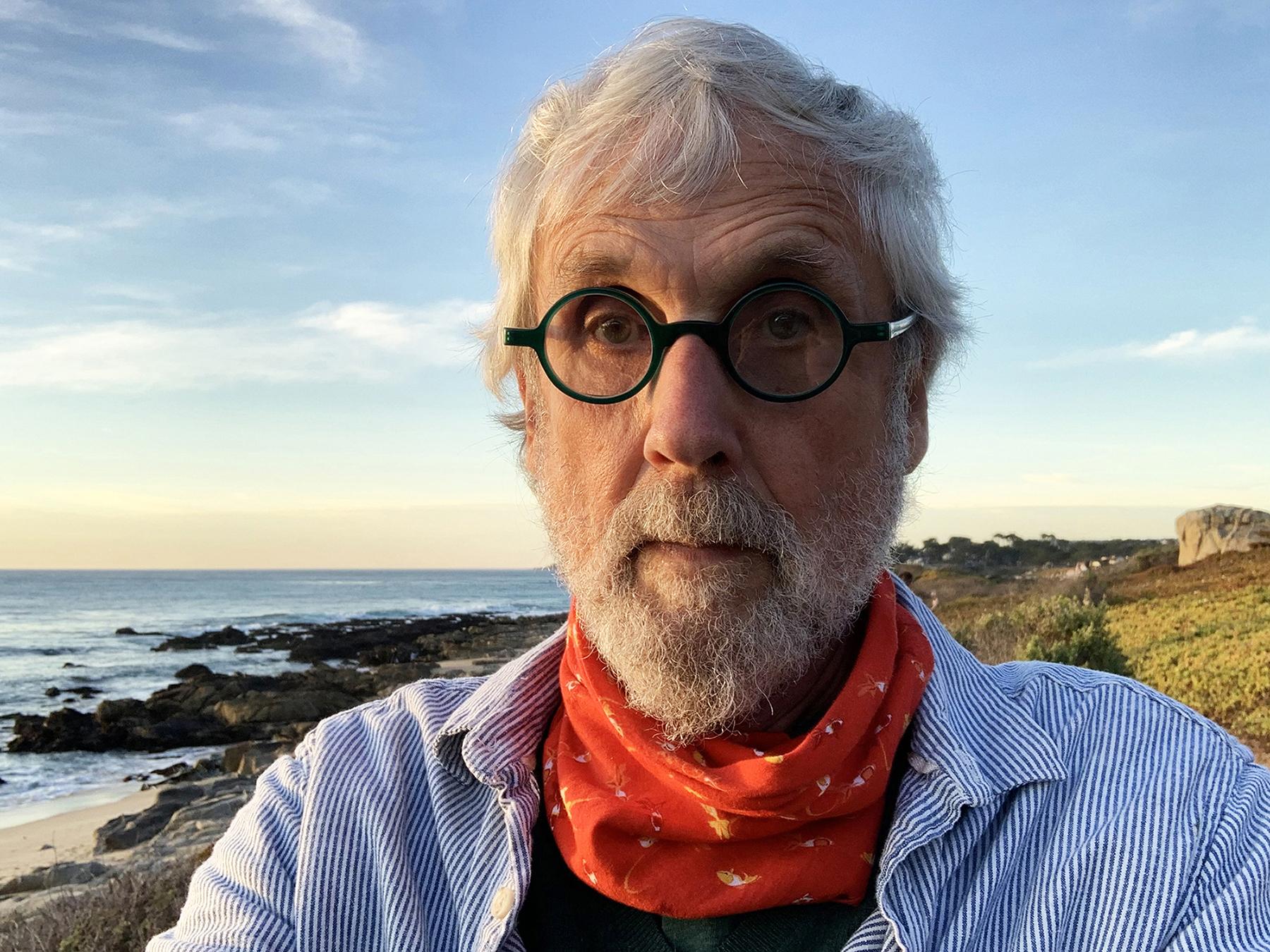
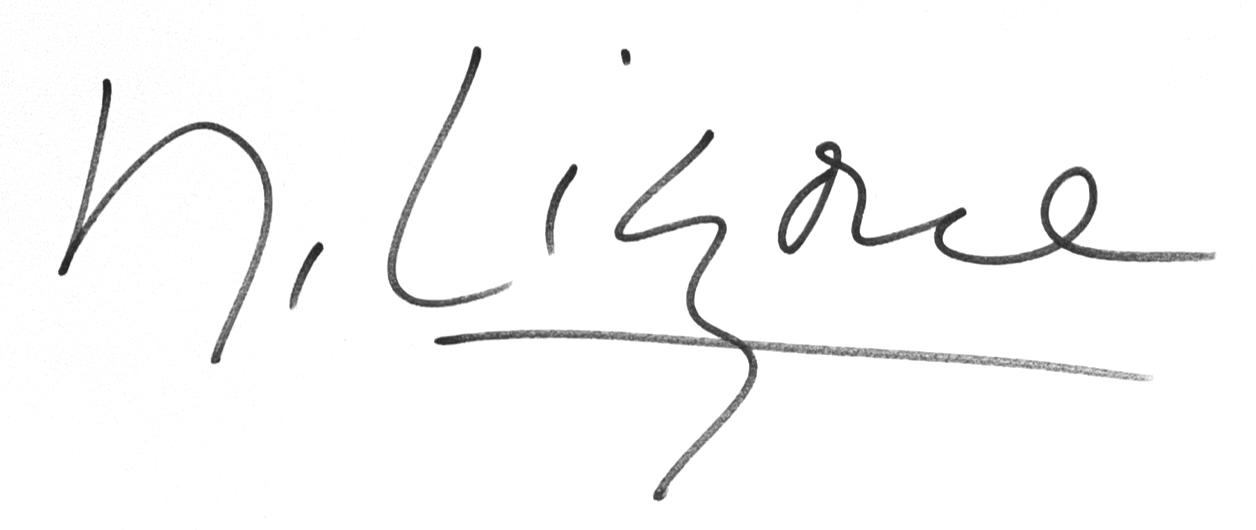
David Ligare
When I began my project more than 30 years ago I decided that there would be three basic components to my work; Figures, landscapes and still lifes. For me the pastoral landscapes of our region of California have been useful as stages for ideas. Indeed, the 'pastoral mode' as it's called is essentially a contemplation of mortality. The classical approach to landscape requires an underlying structure (implying the inter-relatedness of all things) as well as an elegiac approach to the wonders of nature and the beauty of light. The landscape of California like the landscape of Italy is a dream made real.
Philip McCracken
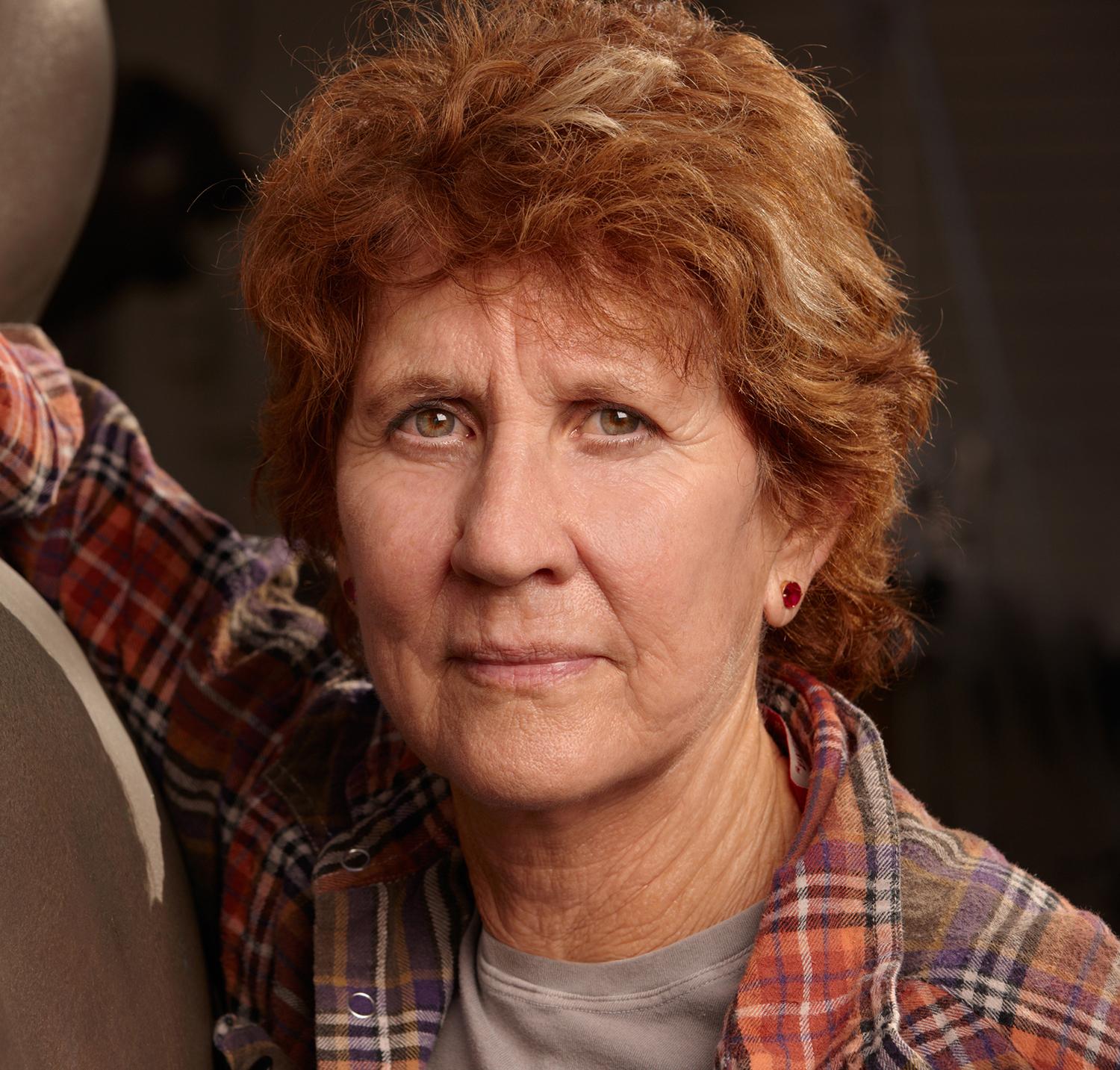
Gwynn Murrill
Gwynn Murrill’s work bridges figurative and abstract sculpture. Her animal figures serve as points of departure for the exploration of form, becoming vessels, which reduced to their most basic lines and shapes, elegantly echo the essence of her subject.
Paring away everything that is not absolutely necessary to perceive her subjects in all their purity, Gwynn often sacrifices details leaving us with sculptures emanating primal characteristics and universal attributes. Gwynn’s signature bronze works are fluid in line and form, elegant, inviting to touch and instilled with vitality and a sense of being--either caught in an tacit moment of serenity and self-possession or brimming with the implied potential to pounce, twist, or take off at any moment.
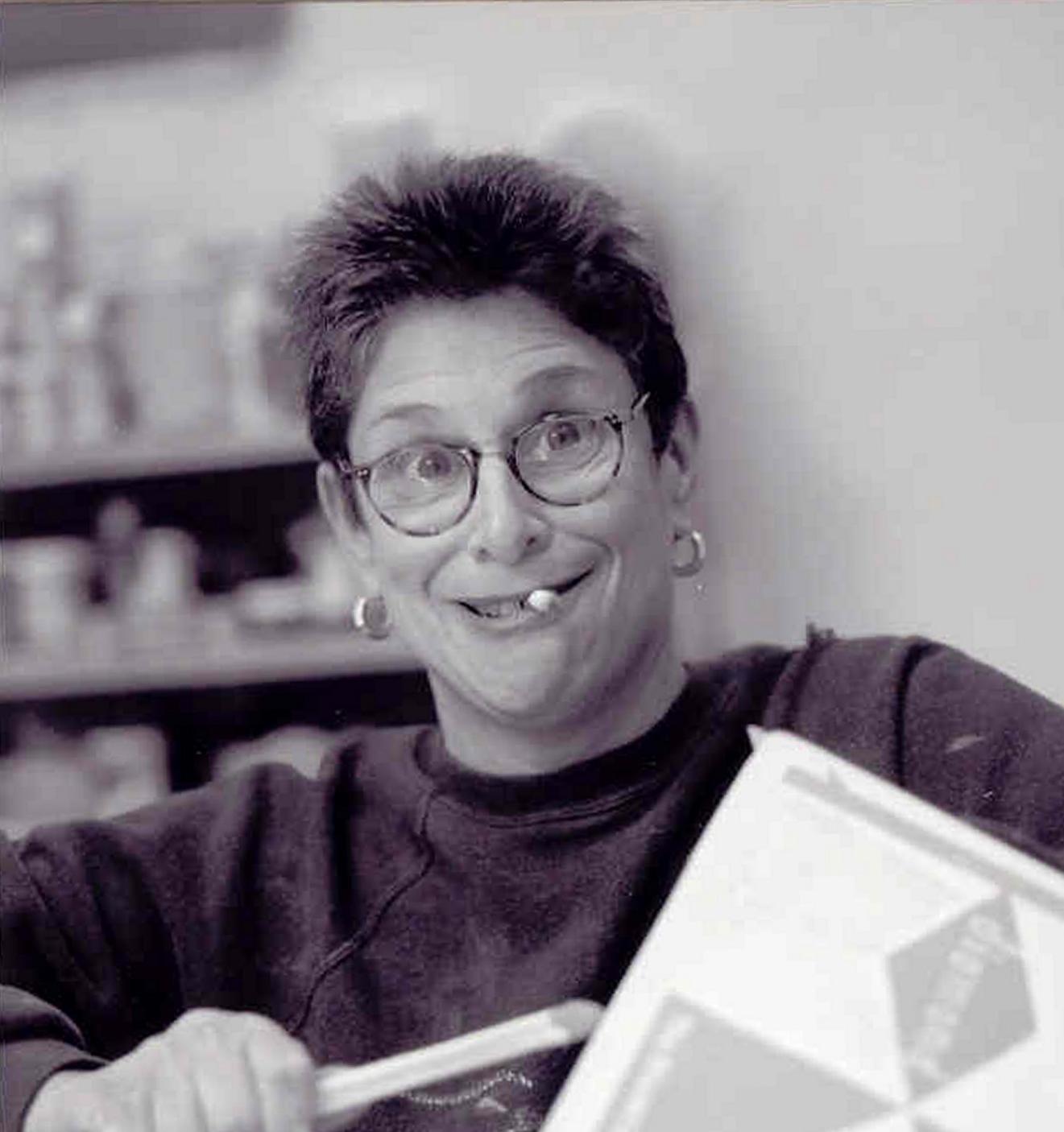

Karen Shapiro
"Art imitates life. Particularly for those who recognize it in the common elements of their everyday surroundings. The sculptural curve of a coffeepot, the etching on a bar of soap, the texture of an orange. The creative eye can see it; the creative hand will render it.
Karen Shapiro derives her art from what’s already there. It doesn’t have to be studied, interpreted or understood. Her ceramic sculpture is what it is, whether it be a crayon, a lipstick or a carton of milk." - Lisa Watson
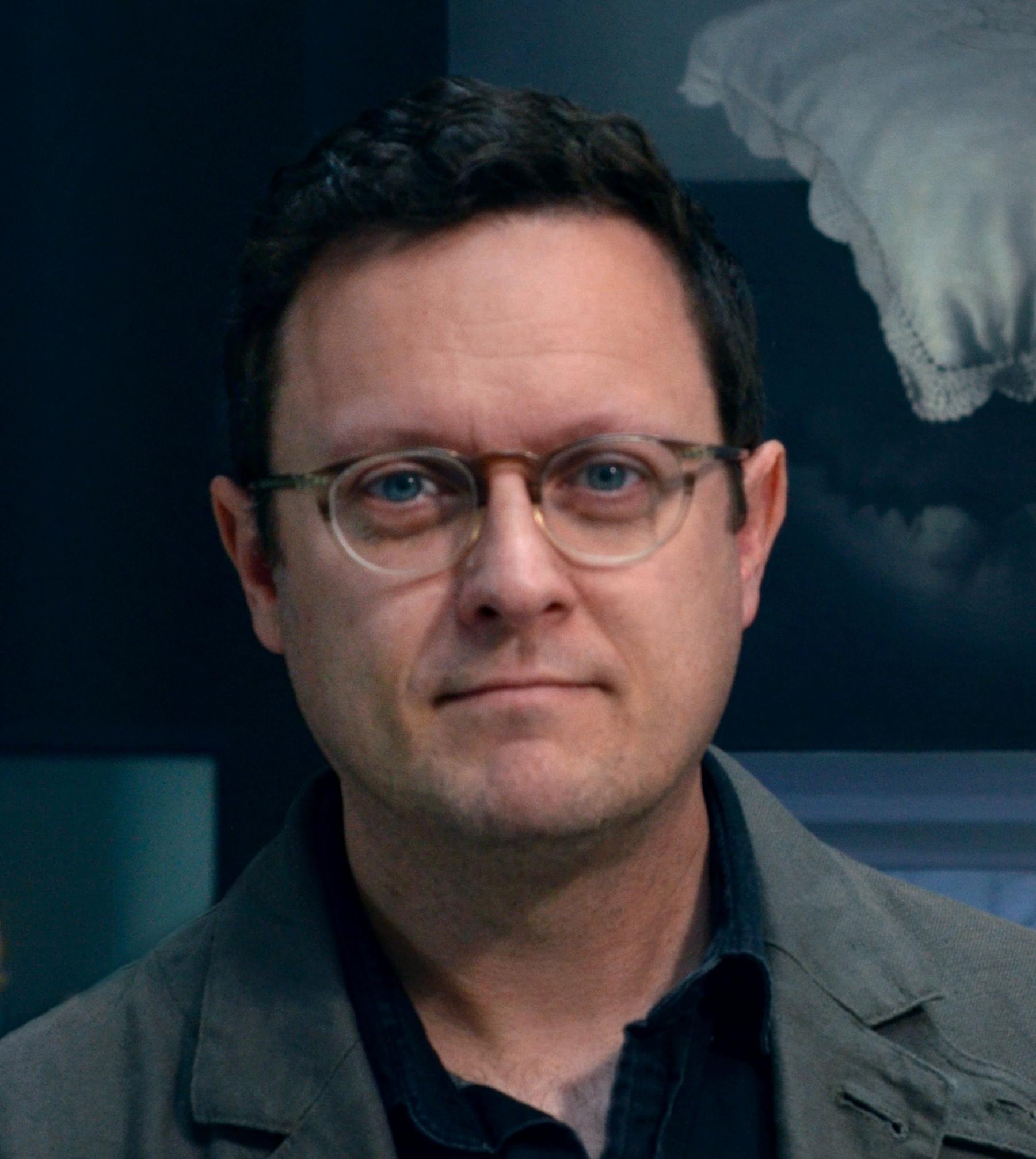
David Stanger
David Stanger is a realist painter known for his contemplative portraits and interiors that often have a symbolic or allegorical character. Simultaneously painted with a deep knowledge of old-master technique and approached in a contemporary manner, Stanger’s work reflects various influences, most significantly the works of Vermeer, Hammershoi, and Lopez Garcia.
